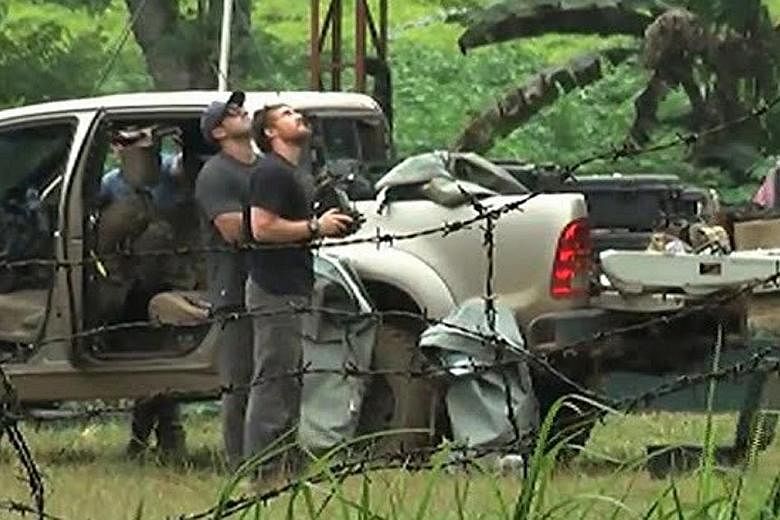Their commander-in-chief may have a mouthful to say about Mr Barack Obama and Americans in general. But when they badly need help, the soldiers of the Philippine army will always turn to the US.
That is just the fact, President Rodrigo Duterte himself conceded.
"This is really their sentiment, our soldiers are really pro-American, that I cannot deny," he told reporters last week.
Security officials have confirmed that US special forces are helping the Philippine army dislodge hundreds of Muslim militants still holed up and fighting for a fourth week at the the now devastated centre of Marawi city.
The conflict began when about 500 ultra-radicals from the Maute and Abu Sayyaf groups stormed Marawi in an audacious bid to transform the city into a "province" of the Islamic State in Iraq and Syria (ISIS) terrorist group.
Photos snapped by journalists show at least four US special forces personnel setting up what seemed like surveillance or communications tracking equipment and flying drones somewhere in Marawi. A US P-3 Orion surveillance plane has also been seen flying over Marawi.

Lieutenant-Colonel Jo-Ar Herrera, spokesman for Task Force Marawi, said the Americans are providing only "technical assistance" and "training". They are helping to gather intelligence and locate the militants, and are not involved in any fighting.
Mr Duterte said he did not ask for help from the United States, and that he did not know about it until the Americans were already in Marawi. He said he did not think his army needed the help, but he was thankful just the same for their assistance.
Whatever his personal feelings, the conflict in Marawi is forcing him to recalibrate his attitude towards Washington.
Already, he has qualified that his quarrel is not with the American people, but with former president Mr Obama.
As for President Donald Trump, he said: "He's my friend."
That is a far cry from when he called Mr Obama a "son of a bitch", demanded that all US troops leave the Philippines, and flatly told the US: "We don't need your money."
His beef has always been with the way Washington has criticised his war on the narcotics trade, a cornerstone of his government. With Mr Trump less fixated on human rights, Mr Duterte has been more reserved in his anti-American rhetoric. His softer tone towards the US is an acknowledgement that rising Islamist militancy is a bigger problem than he alone can handle.
Analysts warn that the fighting in Marawi is inspiring disparate groups of militants to coalesce into a new organisation loyal to ISIS that could pose threats to everyone in South-east Asia. Already, there are "sleeper cells" in nearly all provinces in Indonesia, and a Washington-based think-tank is keeping tabs on at least 20 ISIS-linked groups, including Jemaah Islamiah splinters.
The militants fighting in Marawi are also social-media savvy, more connected to the Middle East, and seek quick, explosive results beyond national borders.
Faced with such adversaries, Mr Duterte needs all the help he can get, and the US, whether he likes it or not, is where he can get the most help - not China or Russia.
Decades-long security arrangements have kept the Philippine military knitted tightly to the US. Neither China nor Russia has existing treaties with the Philippines that will allow them to send troops to Marawi.
Appraising the American presence in Marawi, former foreign secretary Alberto Romulo said "conditions are there for a reboot of Philippine-US relations".


